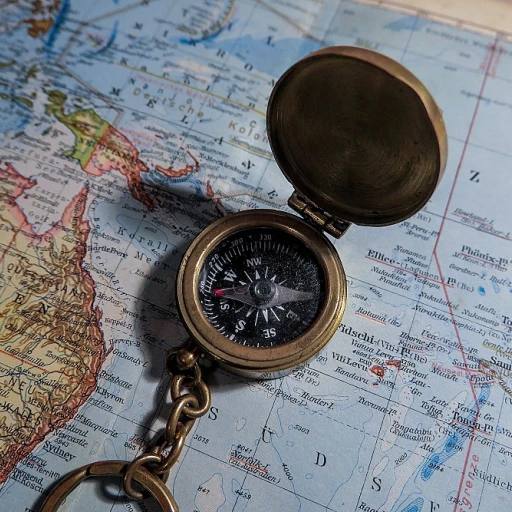
Understanding the role of AI in modern HR
The Evolving Landscape of Human Resources
Human resources has always been about people. Today, the role of HR professionals is changing rapidly, as artificial intelligence becomes a key part of the workplace. AI is not just a trend; it is transforming how organizations manage their teams, support employee development, and build a positive work environment. This shift is helping companies celebrate the hard work of their HR teams and create a culture where every employee feels valued.
Across the year, especially on international days dedicated to HR professionals, organizations are recognizing the importance of adapting to new technologies. AI tools are now supporting HR teams in everything from recruitment to employee engagement, making it easier to appreciate and develop talent. The impact of AI is visible in daily HR operations, as well as in long-term strategies for professional development and company culture.
- AI helps HR professionals analyze employee data to improve workplace culture and engagement.
- It supports the creation of a more positive work environment by identifying trends and areas for improvement.
- AI-driven insights allow HR teams to celebrate professional achievements and support ongoing development.
As organizations focus on building strong teams and fostering a sense of appreciation, AI is becoming an essential resource. It empowers HR professionals to make better decisions, enhance employee experiences, and drive the company forward. For those interested in how AI can shape workforce strategy, enhancing workforce strategy with total talent management offers valuable insights into the future of HR.
In the coming years, the integration of AI will continue to influence how HR professionals work, celebrate achievements, and support the growth of every employee. Embracing these changes is key to building a resilient and innovative organization.
AI-powered recruitment: benefits and challenges
Transforming Talent Acquisition with AI
AI-powered recruitment is reshaping how organizations attract and select talent. Human resource professionals now have access to advanced tools that analyze resumes, screen candidates, and even schedule interviews. This technology helps teams save valuable time, allowing them to focus on building a positive work environment and supporting employee development throughout the year.
Key Benefits for HR Professionals and Teams
- Efficiency: AI streamlines repetitive tasks, enabling HR professionals to dedicate more energy to employee engagement and company culture.
- Consistency: Automated screening ensures every applicant is evaluated using the same criteria, supporting fairness in the workplace.
- Scalability: AI solutions can handle large applicant volumes, which is especially helpful during peak hiring seasons like July or September.
- Data-driven insights: Recruitment teams gain access to analytics that help them understand hiring trends and improve decision-making.
Challenges and Considerations
Despite these advantages, integrating AI into recruitment comes with challenges. Professionals must address potential biases in algorithms to ensure every candidate feels valued. Maintaining a human touch is essential for a positive candidate experience and a strong workplace culture. Data privacy is another concern, as sensitive employee information must be protected in line with ethical standards.
Celebrating Progress and Embracing Change
As organizations celebrate HR professionals and their hard work, it’s important to recognize the evolving role of AI in recruitment. By embracing these tools, companies can foster a culture of appreciation and professional development. For more insights on how AI is transforming HR teams, explore this resource on team augmentation in human resources.
Enhancing employee engagement with AI tools
AI Tools Creating a Positive Work Environment
Employee engagement is at the heart of every successful organization. As companies strive to build a positive work environment and strong workplace culture, artificial intelligence is becoming a key ally. AI-powered platforms help human resource professionals monitor employee sentiment, identify trends, and respond to concerns in real time. This empowers HR teams to celebrate professional achievements and ensure employees feel valued throughout the year, not just on special days like International HR Professionals Day or during annual reviews.
- Personalized development: AI can recommend tailored professional development opportunities, making it easier for employees to grow within the company and for teams to celebrate progress together.
- Feedback and recognition: Automated systems can collect feedback and highlight hard work, supporting a culture of appreciation and recognition. This helps foster a happy workplace and boosts morale.
- Pulse surveys: Regular, AI-driven surveys provide insights into employee engagement, allowing HR professionals to address issues quickly and maintain a positive work environment.
By leveraging these tools, organizations can strengthen their company culture and support the professional growth of every team member. AI-driven engagement strategies also help HR professionals identify when employees may need extra support, ensuring no one feels overlooked. This is especially important during busy times of the year, such as July or September, when workloads can increase and appreciation can make a real difference.
Celebrating Achievements and Building a Stronger Team
AI is not just about efficiency—it’s about making people feel seen and valued. Automated recognition platforms can highlight employee milestones, work anniversaries, and professional day celebrations on social media or internal channels. This public appreciation helps reinforce a positive workplace culture and encourages others to contribute to the company’s success.
As organizations embrace AI in human resources, the role of HR professionals is evolving. They are becoming champions of both technology and people, using data-driven insights to create a more engaged, happy, and productive workforce. For more on how AI is shaping HR practices, including the impact on workforce changes, see this analysis of workforce transitions in the age of AI-driven HR.
Addressing bias and fairness in AI-driven HR systems
Building Trust: Tackling Bias and Fairness in AI for HR
As organizations embrace artificial intelligence in human resources, ensuring fairness and minimizing bias in AI-driven systems is crucial for a positive work environment. AI can help streamline recruitment and employee development, but it can also unintentionally reinforce existing biases if not carefully managed. This is especially important as companies celebrate professional days and recognize the hard work of their HR teams, who are responsible for creating a workplace culture where every employee feels valued.
- Bias in Data: AI systems learn from historical data, which may reflect past biases in hiring or promotions. If not addressed, these biases can influence decisions about who joins the team or advances within the company.
- Transparency: Professionals need to understand how AI makes decisions. Transparent algorithms help HR professionals and employees trust that the process is fair, supporting a culture of appreciation and professional development.
- Continuous Monitoring: Regular audits of AI tools are essential. By reviewing outcomes and adjusting models, organizations can ensure fairness and celebrate the diversity of their people throughout the year, not just on international days or during annual reviews.
Creating a fair and inclusive workplace is a shared responsibility. HR professionals play a key role in monitoring AI systems and advocating for ethical practices. By doing so, they help foster a positive work environment and a company culture where everyone, from new employees to experienced professionals, can thrive. This commitment to fairness is vital for the ongoing development of both the organization and its people, ensuring that every day in the workplace is an opportunity to celebrate professional achievements and support employee engagement.
Data privacy and ethical considerations in HR AI
Safeguarding Employee Data in the Age of AI
As companies embrace artificial intelligence in human resources, the responsibility to protect employee data becomes even more critical. Every day, HR professionals handle sensitive information about people, from personal details to performance metrics. AI-powered tools can help streamline work and support professional development, but they also introduce new challenges around privacy and ethics.
- Transparency: Employees need to understand how their data is being used by AI systems. Open communication helps foster a positive work environment and builds trust within the organization.
- Consent: It’s essential for HR teams to obtain clear consent from employees before collecting or analyzing their data. This step ensures that people feel valued and respected in the workplace.
- Data Security: Protecting sensitive information is a year-round priority. Companies must invest in secure systems and regularly review their protocols to prevent unauthorized access or data breaches.
- Ethical Use: AI should be used to support employee engagement and professional growth, not to monitor or control people unfairly. Maintaining ethical standards helps celebrate the hard work of HR professionals and strengthens company culture.
HR professionals play a vital role in shaping a culture of appreciation and respect. By prioritizing data privacy and ethical considerations, organizations can create a workplace where employees feel safe, happy, and empowered to develop their skills. Whether it’s International Human Resource Professionals Day in September or any other day of the year, safeguarding employee data is a key part of celebrating the contributions of every team member.
As AI becomes more integrated into daily HR work, ongoing training and professional development are essential. This commitment not only supports compliance but also helps maintain a positive workplace culture where everyone can thrive.
Preparing HR professionals for an AI-driven future
Building Skills for the Future of HR
As artificial intelligence continues to transform the workplace, HR professionals are finding new ways to support employees and strengthen company culture. The role of human resource teams is evolving, and ongoing professional development is essential for adapting to these changes. Investing in AI literacy helps professionals feel valued and confident in their ability to guide organizations through this shift.
- Continuous learning: Encourage HR teams to participate in training programs focused on AI tools and data-driven decision-making. This supports a positive work environment and ensures that everyone is prepared for the challenges and opportunities ahead.
- Collaboration: Foster a culture where employees and HR professionals work together to integrate AI solutions that enhance employee engagement and appreciation. This collaboration strengthens the organization and helps celebrate professional achievements throughout the year.
- Adaptability: Emphasize the importance of flexibility as AI technologies evolve. HR professionals who are open to change will be better equipped to support their teams and maintain a happy, inclusive workplace culture.
Recognizing and Celebrating HR Excellence
Celebrating HR professionals is more important than ever. Whether it’s on a professional day, international day, or during company events in July or September, recognizing hard work and dedication boosts morale and helps employees feel valued. Sharing appreciation on social media or within the organization reinforces a culture of gratitude and respect.
By prioritizing professional development and celebrating achievements, companies can create a positive work environment where both employees and HR professionals thrive. This approach not only supports the growth of individuals but also strengthens the entire organization for the future of work.













